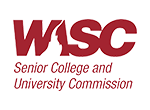
Certificate in
Alternative Dispute
Resolution
4-week
COURSES
Start sooner and finish faster with our innovative course design.
Year-round
enrollment
Our admissions team reviews applications year-round.
200K+ Alumni Worldwide
Become a member of NU’s global community.
Program Overview
Alternative dispute resolution certificate students who wish to pursue a baccalaureate degree or a second baccalaureate degree can apply some or all the academic credits awarded in the online undergraduate certificate program toward that degree, assuming they meet the GPA and other ADR course requirements of that degree program.
Employment and volunteer opportunities exist for mediators in both the private and government sectors such as:
- Ombuds person for a corporation or university
- Education, teaching and training
- Human Resources Departments
- U.S. Military
- State Mediation and Conciliation Service (SMCS)
- State of California Department of Fair Employment and Housing
- San Diego City Attorneys Office
- Federal Mediation and Conciliation Service
- Equal Employment Opportunity Commission (EEOC)
- Mediation and Arbitration Private Practice
- Small Claims Courts
- Nonprofit Organizations and Community Mediation Programs
- Restorative Justice Program

The Western Association of Schools and Colleges (WASC) accredits public and private schools, colleges, and universities in the U.S.
Course Details
Course Listing
Certificate Requirements
- 6 courses; 27 quarter units
To receive a Certificate in Alternative Dispute Resolution, students must complete four courses for the major and two electives from the courses listed below.
Course Name
This introductory course will provide students with a broad understanding of ADR. The course will cover Negotiation, Mediation, Arbitration how each is used, and the advantages and disadvantages of each method. The course utilizes role plays, simulations, and case studies.
An introductory interactive course designed for students and the business professional to develop the verbal and analytical skills required to perform effectively as a negotiator in conflict situations. Students will participate in negotiating exercises, and learn different negotiating techniques through simulations, videos, and case studies.
An interactive, introductory course designed for students and business professionals to develop an understanding of group dynamics and decision making as a basis for learning the roles, processes and techniques of group facilitation. The course utilizes role plays, simulations, and case studies.
An introductory interactive and entertaining course designed for students and business professionals to develop the skills required to perform effectively as a mediator. Students will be introduced to different mediation styles such as facilitative, transformative, and evaluative methods. The course utilizes negotiating principles, role plays, videos, and case studies.
Electives
Course Name (Choose two of the following)
This course will explore workplace, interpersonal and team conflict dynamics and methods for effective communication in such conflict situations. Participants will learn communication skills for resolving such conflicts for themselves, between others and within a team or group, and strategies for preventing or defusing rising conflict. Additionally, participants will learn how to integrate conflict resolution into various organizational cultures.
This course will explore the nature of cultural differences in various conflict situations. Through the examination of various cultural perceptions, participants will learn how to apply concepts of cultural fluency in a variety of conflicting cultural scenarios, and employ personal, interpersonal and inter group skills to bridge cultural differences and achieve mutually beneficial outcomes. Students will participate in role plays, videos, and case studies to enhance their understanding of these issues.
This course explores the behavior of mediators, arbitrators and other neutrals to avoid conflicts of interest and perceived partiality. Through case study and role playing the participant will learn appropriate behavior that improves the quality of the process, enhances competency and promotes acceptance of and confidence in ADR processes. Students will be introduced to topics such as how to remain impartial during a mediation, avoiding conflicts of interest, quality of the process, competency, confidentiality and promoting public confidence in the mediation process.
Admissions
Enrolling in a university is a big decision. That’s why our dedicated admissions team is here to guide you through the admissions process and help you find the right program for you and your career goals.
To that end, we’ve simplified and streamlined our application process, so you can get enrolled in your program right away. Because we accept and review applications year round, you can begin class as soon as next month, depending on your program and location of choice.
Learn more about undergraduate, graduate, military, and international student admissions, plus admissions information for transfer students. You can also learn more about our tuition rates and financial aid opportunities.
To speak with our admissions team, call (855) 355-6288 or request information and an advisor will contact you shortly. If you’re ready to apply, simply start your application today.

4 WEEK COURSES
Why Choose National University
- Four-Week Courses
- 75+ Degree Programs
- Online or On-Site
- Year-Round Enrollment
- Military Friendly
We’re proud to be a veteran-founded, San Diego-based nonprofit. Since 1971, our mission has been to provide accessible, achievable higher education to adult learners. Today, we educate students from across the U.S. and around the globe, with over 240,000 alumni worldwide.

“National University has impacted my career. You can immediately apply what you learn in class to your business.”
-Francisco R., Class of 2016

FLEXIBLE SCHEDULE

Year of You Scholarship
Do you qualify for a needs-based scholarship? Learn more about the NU Year of You Scholarship and other scholarship opportunities to unlock the door to your dreams!
Program Disclosure
Successful completion and attainment of National University degrees do not lead to automatic or immediate licensure, employment, or certification in any state/country. The University cannot guarantee that any professional organization or business will accept a graduate’s application to sit for any certification, licensure, or related exam for the purpose of professional certification.
Program availability varies by state. Many disciplines, professions, and jobs require disclosure of an individual’s criminal history, and a variety of states require background checks to apply to, or be eligible for, certain certificates, registrations, and licenses. Existence of a criminal history may also subject an individual to denial of an initial application for a certificate, registration, or license and/or result in the revocation or suspension of an existing certificate, registration, or license. Requirements can vary by state, occupation, and/or licensing authority.
NU graduates will be subject to additional requirements on a program, certification/licensure, employment, and state-by-state basis that can include one or more of the following items: internships, practicum experience, additional coursework, exams, tests, drug testing, earning an additional degree, and/or other training/education requirements.
All prospective students are advised to review employment, certification, and/or licensure requirements in their state, and to contact the certification/licensing body of the state and/or country where they intend to obtain certification/licensure to verify that these courses/programs qualify in that state/country, prior to enrolling. Prospective students are also advised to regularly review the state’s/country’s policies and procedures relating to certification/licensure, as those policies are subject to change.
National University degrees do not guarantee employment or salary of any kind. Prospective students are strongly encouraged to review desired job positions to review degrees, education, and/or training required to apply for desired positions. Prospective students should monitor these positions as requirements, salary, and other relevant factors can change over time.